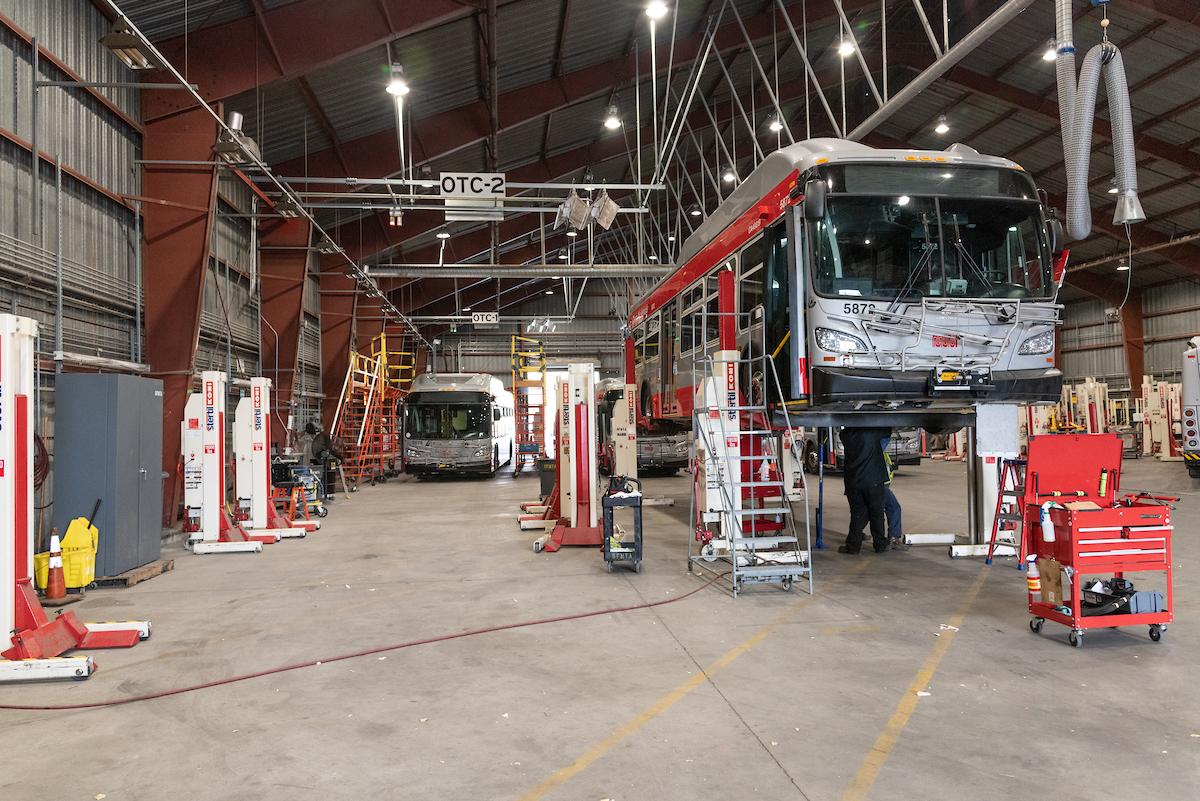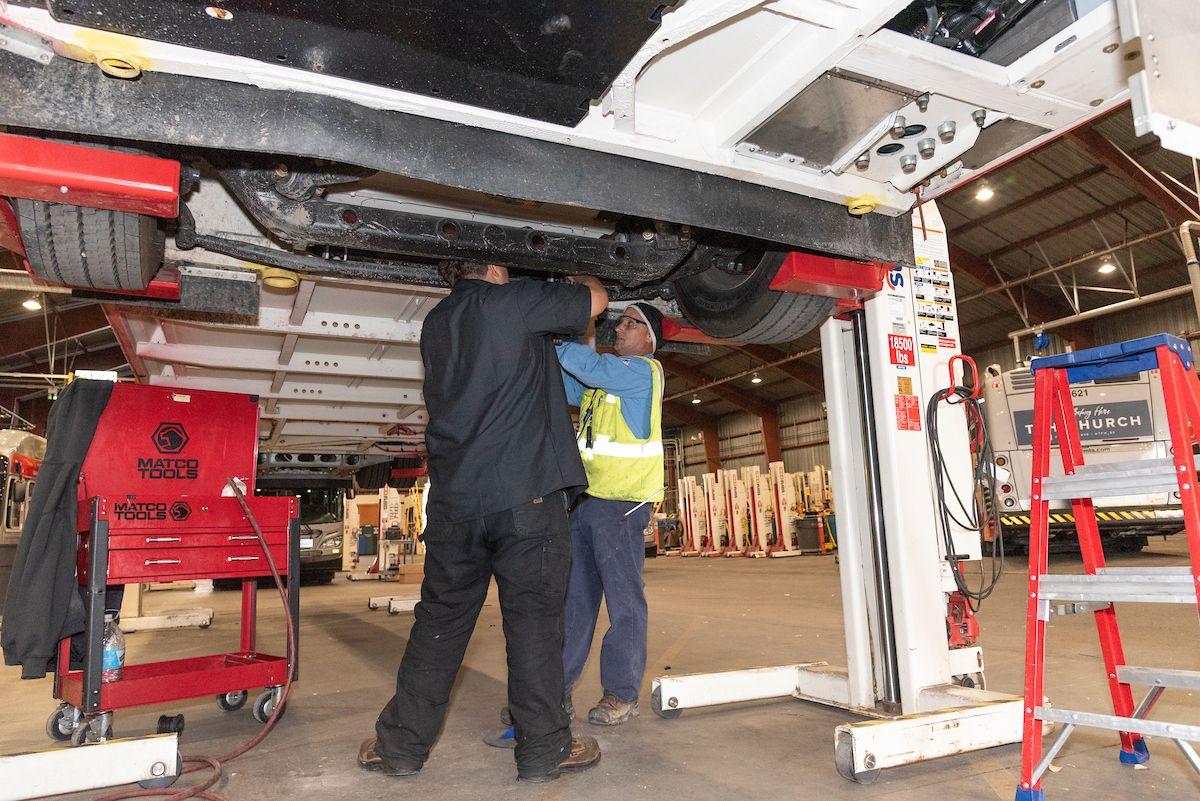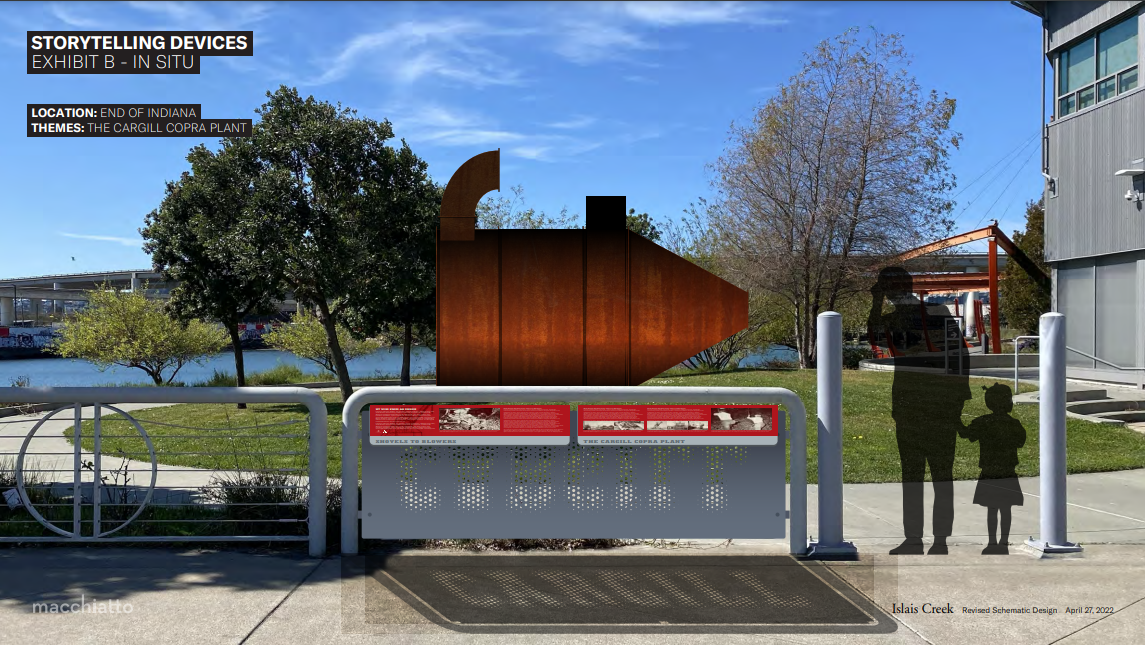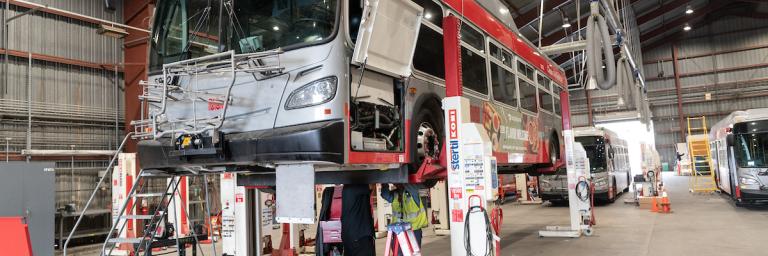The Marin facility is a 3.2-acre site located south of Cesar Chavez and west of Third Street. We are planning improvements centered on safety and security and prepping the site to support Muni yards closing for construction.
Improving the Marin Site
Many improvements can be considered deferred maintenance. Work may occur from early 2025 to late 2025.
Planned improvements include:
- Upgrade security gates
- Improve and increase yard lighting (which will include minor trenching)
- Spot re-paving of bus parking area
- Upgrade and increase security cameras
No improvements are planned for the warehouse building on site.

Muni Activity on Site
The SFMTA leases the site from the Port of San Francisco. The facility has been used as a transit and new transit vehicle acceptance and testing facility by the SFMTA since 1998. The site can be active up to 24 hours a day, seven days a week.
As the SFMTA closes yards for modernization and electrification, the Marin Facility will play a transitional role. Activity would include bus parking and maintenance. Although activity at the site would increase over the current state, it will be similar in nature.
When the Potrero Bus Yard closes, Marin would support around 20 electric trolley buses at a time. Bus maintenance activities could include trolley bus charging, fueling and light repair work (also known as running repair). Some additional Maintenance staff will move to the Marin site.
Departing and returning buses would access the site via Indiana Street and Cesar Chavez Street. They would enter the facility from Marin Street and exit onto Indiana Street.

Preparing for Future Transit Needs
The SFMTA is working towards a 100% zero-emission fleet as part of its leadership in confronting climate change. The agency’s Building Progress Program oversees planning efforts to upgrade aging bus yards with new charging infrastructure and other improvements to support a fully electric bus fleet.
The transition to a zero-emission fleet will happen in several phases. The SFMTA plans to use the Marin Facility to house buses and perform light maintenance as yards close for improvements or electrification.
Historical Artifact Installation
This side project will spotlight the Cyclone Separator, a key artifact of the Islais Creek Waterfront's industrial history. It comes from a time when coconut meat (copra) was imported from the Philippines and processed into oil at the nearby Cargill Mill. The separator was located on the Islais Creek Waterfront and was used to remove solids from liquids in the coconut. Use of the separator ended in the 1970s. Now, the SFMTA plans to restore the cyclone separator and display it as an homage to the area’s rich heritage.

